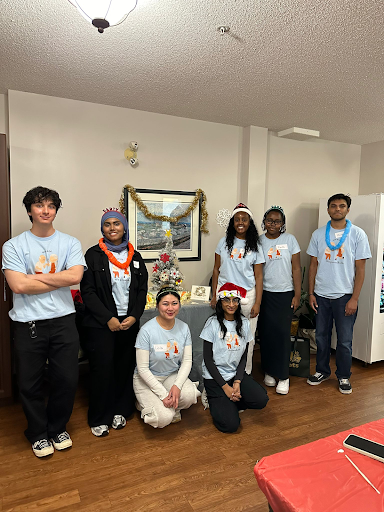Why I chose engineering
March 25, 2025
What drove my decision?
I often get asked this question: “Why did I choose engineering?” I'm not the sharpest tool in the shed. The way I do calculus is enough to make any of my professors cringe, and the workload is nothing peachy. After all these years, I’m still here. Why? I assure you it’s not just for that lovely paycheck.
I chose engineering because I saw a significant problem in the engineering field: a lack of women. At a young age, I learned that female engineers comprise only about 15% of all the engineers in Canada, and I thought that was crazy. The people designing everything from cars to menstrual products were all predominately men. I learned this was because of how girls were treated and perceived as they grew up, and at the time, I didn’t understand why. I was taught like everyone else in my class, like my male peers and my older brothers before me. I didn’t feel different.
How high school shaped my experience with STEM
Then came 8th grade, when my school had a mini career fair with about 10 speakers. We could pick three or four to listen to, and since I was dead set on something tech-related, I chose to hear from a computer scientist, a pilot, and a chef (the last one was just for fun—it’s hard to cover every field with only 10 speakers). During the pilot’s talk, she thanked all the women in the room for being there, as there aren’t many women in tech fields. I was happy to hear we were being welcomed and encouraged, but a few boys in my class sighed heavily and rolled their eyes at the comment. I just thought they were stupid and brushed it off as not fully understanding. Just some dummies, I thought, just some dummies who didn’t realize the impact of what they were doing.
That changed when I got to high school. My 9th-grade science teacher sat the entire class down and told us that women's brains are genetically wired to be more communication-based and that STEM wasn’t the right fit for us. I was infuriated, especially because this was coming from a female teacher. She had just told a room full of impressionable 13-year-old girls that we weren’t good enough for STEM careers and there was no way to change it. Her experience as a woman in STEM made her words even more impactful; maybe it wasn’t meant for us after all.
Then came my 10th-grade math teacher and careers teacher, who believed that women are not cut out for STEM. We belong behind a desk sending out the monthly office newsletter, not coding the latest iPhone or on a nuclear power plant operating floor. I couldn't understand what made them think this, but it became clear why so few girls pursue STEM beyond high school. Teachers, the people we were supposed to trust, were shaping our futures with their biases. I was not surprised at my graduation that most of the women in my class had gone into the same communication-based fields like psychology, the arts, or business. I was one of the very few going through to be an Engineer.
My initial experience in engineering
When I started university, in one of my first classes, my professor discussed the need for diversity in engineering and how engineering needs more women. The man sitting next to me laughed at the thought of inclusiveness, and I was sent back to 8th grade, but no, that couldn't be; we were all adults now, until this happened more and more. Some of my professors expressed how much they appreciated seeing more women in their classes, and initially, this was a kind gesture.
But I noticed more and more of my male peers rolling their eyes and asking us why we were so special, why we got complimented, and why they didn’t; this question never goes away no matter how many times we explain the importance of encouraging women to pursue STEM, skepticism and harsh comments persist. What had seemed like a positive acknowledgment became a source of hurt.
Why didn’t I give up?
One summer, I worked at a STEM camp, and we didn’t see many girls. It was sad that the class lists included maybe two or three girls out of a possible thirty each week. One little girl stood out to me. She told me matter-of-factly that girls couldn’t be engineers. I was shocked. How did someone so young even know what an engineer was? And why did she already believe it wasn’t possible for her? When I asked, she explained the “dream gap,” where young girls don’t see women in specific roles and never dream of becoming it themselves. I then went on to tell her my story. I was entering my 3rd year to become an electrical engineer, and striving for what seems impossible can inspire others. I wanted her to see that we could help close the gap for future generations by pursuing our dreams. But she didn’t believe me. She thought the dream gap was too wide to bridge. Her doubt broke my heart. No eight-year-old should feel incapable of achieving something because of their gender. Yet, this is the reality many girls face.
Women are the future of STEM!
It still baffles me when men ask that pesky question, “Why do women get special treatment?” The truth is, we don’t. Sure, it might say at the bottom of every job posting that a company is inclusive and prefers to hire women and minorities, but we have been fighting an uphill battle since childhood. We’re taught to trust people like teachers and friends, but many of them are oblivious to the effect they have. Sometimes, I wish I could go back to thinking these people were dummies, but as they rise to positions of authority, their ignorance starts to do actual harm. That’s why I chose to be an engineer: to challenge these biases, inspire change, and make it easier for the girls who come after me to dream big and believe they belong in STEM.






